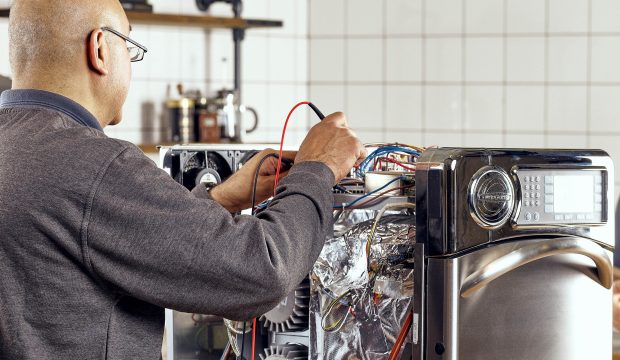
FEA survey highlights importance of engineer training in improving electrical safety
Majority of engineers are qualified, but room for improvement remains
The safety of foodservice equipment engineers has been in the spotlight recently as a result of tragic events. Now the Foodservice Equipment Association (FEA) has published the results of its timely survey of foodservice engineers. It aims to understand the electrical training, certification and competence of engineers in various disciplines related to electrical installations and appliances.
The power supply to commercial appliances requires specialist knowledge to work with safely and can pose significant risks to technicians and engineers. While it is a legal requirement that anyone working with gas appliances must be suitably qualified, there is no similar mandatory requirement for electrical engineers, nor do they need to be a member of a professional body. Many electricians are registered with trade organisations, which encourage compliance with relevant standards and maintain those standards through regular audits.
There are also laws which employers and employees must adhere to, such as the Electricity at Work Regulation and the Health and Safety at Work Act. However, even with regulations and the work of these organisations, there have sadly been several fatalities of technicians working in the foodservice sector.
The survey received over 100 responses from engineers working in various equipment sectors including refrigeration, warewashing and commercial catering.
Over 80% of the respondents reported having undertaken electrical training within the last five years, and nearly 70% reported having a documented safe system of working with electrical equipment. Over 60% expressed an interest in further training, and a majority of respondents considered themselves to have a good working knowledge of the Electricity at Work Regulations and the Health and Safety at Work Act.
While these results are positive, around 20% of correspondents reported having no formal electrical qualifications or a documented safe system for working with electrical equipment.
“The report shows that the majority of electrical engineers are working hard to meet high standards and maintain a safe working environment,” says Paul Anderson, chair of FEA. “However it also underlines the importance that, as a minimum, anyone working with electrical equipment should undertake a recognised training and competence course, such as the City & Guilds accredited Commercial Catering Equipment Electrical Competency Course, which has been specifically developed for technicians. Furthermore, further training should take place regularly to align the engineer with updated standards.”
FEA is encouraging any businesses that employ technicians with no formal electrical certification to provide formal training, and to ensure they understand the importance of promoting safe working practices.
Full survey results and further information about training can be found on FEA’s website, fea.org.uk.
